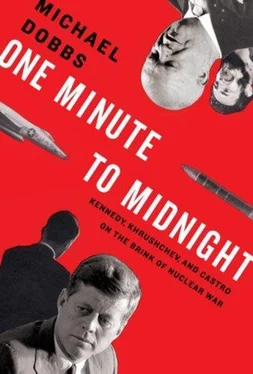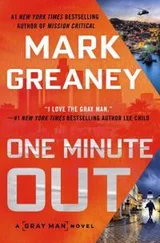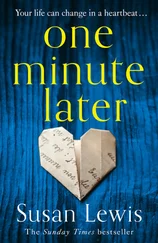It was the zenith of the Cuban love affair with the Soviet Union. Cuban parents were naming their sons after Yuri Gagarin, watching Soviet movies, reading Yevtushenko’s poems, and lining up to buy tickets for the Moscow Circus. But the admiration for the distant superpower was tinged with condescension. Even as they cheered the arrival of Soviet ships and hugged Soviet soldiers, Cubans could not help noticing the smell that the Russians brought with them—an amalgam of noxious gasoline fumes, cheap cigarettes, thick leather boots, and body odor. They even had a name for this strange aroma, “the grease of the bear.”
And then there was the drunkenness. Even Castro complained about the wildness of the Russian soldiers when they were drunk, and the need for “stronger discipline.” The thirst for alcohol led to a huge barter business. Poorly paid Russian soldiers would trade anything—food, clothes, even an army truck—for beer and rum. Military police tried to keep order as best they could, rounding up drunken soldiers and beating them to a pulp.
Many Cubans detected a curious contradiction between the sophistication of Soviet weaponry and the backwardness of ordinary Russians. When the writer Edmundo Desnoes visited a Soviet military airfield outside of Havana with a delegation of Cuban intellectuals, he was struck by the “primitiveness” of the living conditions. While the pilots waited for the order to scramble their modern MiG-21 jets, their wives washed clothes by hand in wooden tubs. The intellectuals were provided beds for the night in the infirmary alongside gurneys already tagged with little tabs for the corpses that were expected shortly.
Carlos Franqui, the editor of Revolucion, was amazed by how poorly the Russians dressed.
They were years out of style; their clothes were ugly and badly cut; and their shoes! The man on the street began to wonder why, if socialism is in fact superior to capitalism, everything these Russians had was so shoddy. The women didn’t even know how to walk in high heels. And there seemed to be great differences between various groups of Russians: the leaders, technicians, and officers had one style, and the soldiers and ordinary laborers had another—much inferior. People began to wonder about the question of equality under socialism.
The Russians were less “overbearing” than the Americans, Franqui thought, and “pleasant” even when drunk, but they gave the impression of “the most absolute poverty.”
The alliance with Moscow had coincided with the sovietization of Cuban society. The revolution was losing its carnival spirit; the bureaucrats were taking over. Most Cubans still supported the goals of the revolution, but their revolutionary ardor had cooled. Communist Party functionaries now occupied key positions in the government. Cuba was turning into a police state, with informers and neighborhood watchdog committees cropping up everywhere. One of the last bastions of intellectual freedom, a weekly literary supplement called Lunes de Revolucion, had been closed down the previous year. Once vibrant newspapers had become government megaphones. Even the language of the Cuban revolution was becoming stultified, full of Marxist-Leninist slogans.
The heavy hand of socialist rigidity was felt in the economy. Many economic decisions depended on Fidel’s personal whim. When the comandante en jefe decreed that the countryside around Havana was ideal for coffee plantations, nobody dared contradict him, even though the land was completely unsuited for this purpose. A ban on private enterprise had led to chronic shortages and a thriving black market. A British diplomat described “a crazy wonderland” where “shoe shops sell nothing but Chinese handbags and most ‘supermarkets’ offer only a shelf of Bulgarian tomato puree.” Confidential KGB reports complained that Cuban peasants were refusing to hand over their produce to the state and “a large number of gangsters are artificially aggravating the deficit in goods.”
Popular dissatisfaction with the regime was trumped, however, by the threat of foreign invasion. Few Cubans were willing to sacrifice themselves for an economic system that was already failing, but many were ready to die for the motherland. For the time being, ideological divisions and disappointments were forgotten in the spirit of patriotism. People might grumble about the impossible bureaucracy and the lack of food in the shops, but most supported Castro in his struggle against “ yanqui imperialism.”
In the end, as one of Fidel’s aides explained to Maurice Halperin, security and material goods were “not all that important” to the average Cuban. What mattered most were the traditional Cuban values of “honor, dignity, trustworthiness and independence,” without which “neither economic growth nor socialism mean a damn.” The regime did everything it could to exploit the national obsession with dignidad, whether individual dignity or national dignity. The British ambassador noted in his annual report that banners in the street proclaimed “ paz con dignidad ” (“peace with dignity”). Even Christmas card greetings came “ con dignidad. ”
“Their Spanish blood may be wearing thin but there is still of lot of Don Quixote” in Cubans, Marchant reported. “This starry eyed brand of national pride in the Cuban revolutionary is a characteristic no observer can afford to ignore in interpreting events.”
Confident in the level of their popular support, Fidel and his followers were busy preparing for a guerrilla war. Militiamen dug trenches around the Hotel Nacional on the Malecon. Arms were stashed all over Havana, in factories, apartment blocks, and government offices, from which weapons could be distributed at a moment’s notice. If the yanquis came, they would meet an armed population. And even if the capital fell, the struggle would continue in the countryside and in the mountains.
The irony was that the United States had chosen to challenge the flagging Cuban revolution at its strongest point, the issue of national sovereignty.
A few minutes after 6:00 p.m., the teletype machines at the State Department in Washington began churning out a long message from the U.S. Embassy in Moscow. It was the latest missive from Nikita Khrushchev. The Soviet leader began his rambling, almost pleading letter by raising the specter of nuclear devastation and chiding Kennedy for being too concerned with domestic political pressures.
You are threatening us with war. But you well know that the very least you would receive in reply would be to experience the same consequences as those which you sent us…. We must not succumb to intoxication and petty passions, regardless of whether elections are impending in this or that country, or not impending. These are all transient things, but if war should indeed break out, then it would not be in our power to stop it, for such is the logic of war. I have participated in two wars and know that war ends when it has rolled through cities and villages, everywhere sowing death and destruction.
The letter had been hand-delivered to the U.S. Embassy in Moscow at 4:42 p.m. local time, 9:42 a.m. in Washington. To speed transmission, American diplomats had chopped the letter into four sections, each one of which had to be laboriously translated into English, ciphered, deciphered, and typed. The first section had taken more than eight hours to reach the State Department. The final portion would not arrive until after 9:00 p.m. Washington time. World peace was hanging by a thread, but it took nearly twelve hours to deliver a message from one superpower leader to another.
The world was in the throes of a half-finished information revolution. Artificial satellites could beam Kennedy’s speeches around the world almost instantaneously, but he could not talk to Khrushchev in real time. He could pick up the phone and call the British prime minister whenever he wished, but it could take hours to reach the leader of Brazil. Navy communications vessels were bouncing messages off the moon, but high-priority traffic between the Pentagon and the warships enforcing the blockade was routinely delayed by six to eight hours. On Wednesday, in the middle of the “eyeball to eyeball” confrontation with Khrushchev over Soviet missile ships headed for Cuba, the president had devoted a precious hour to discussing ways to improve communications with Latin America and the Caribbean.
Читать дальше












